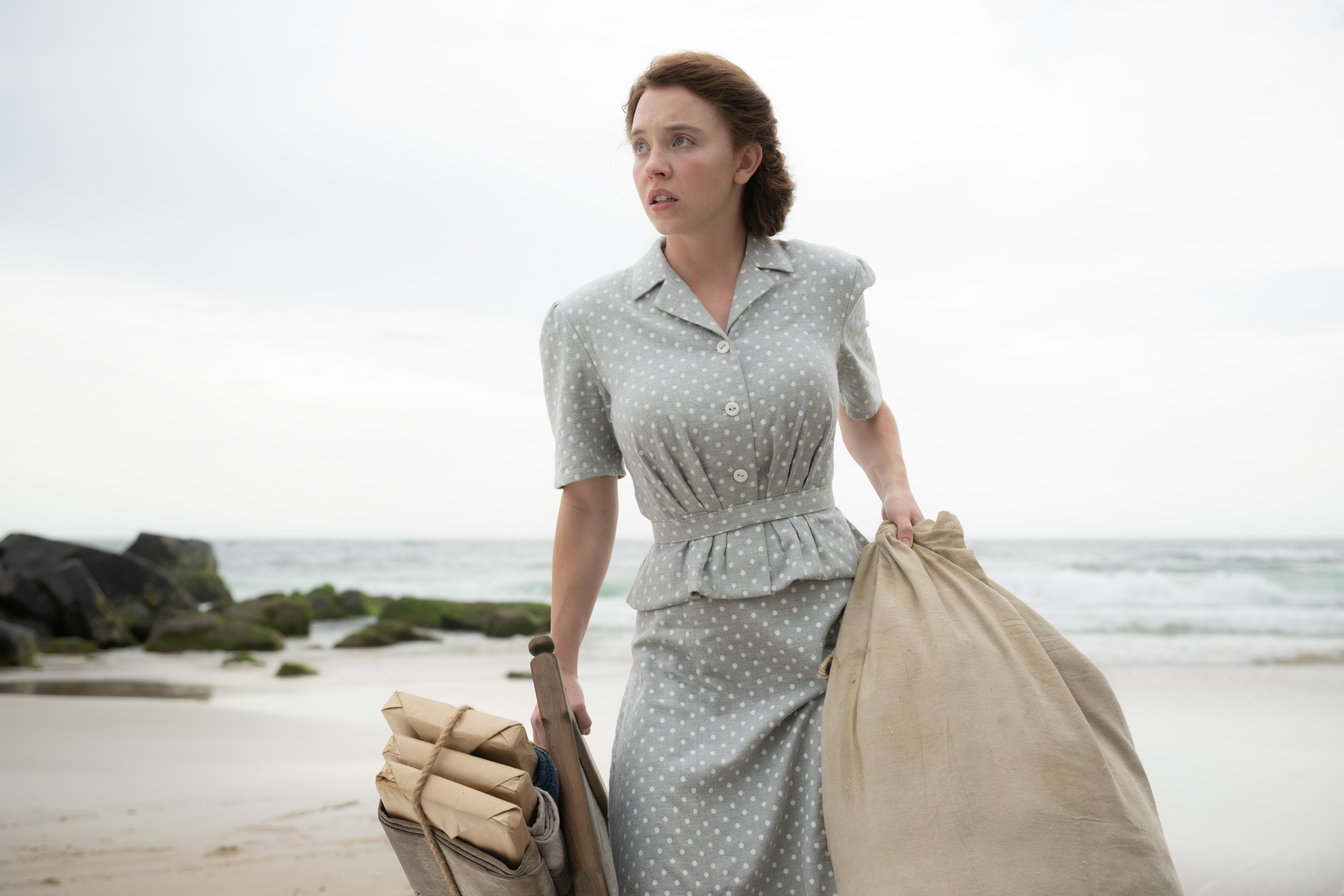After more than a decade of impassioned — and often maddeningly semantic — debate over the concept of “elevated horror,” it doesn’t feel like a coincidence that the most exciting new voice in mainstream horror is a smart guy who’s obsessed with scary basements.
Zach Cregger’s “Weapons” isn’t a basement movie to nearly the same degree that his 2022 debut “Barbarian” is a basement movie (few things are!), but this sad, sprawling, and fun-as-hell vision of suburban despair takes similar pleasure in leveraging a high-concept premise for “low” genre thrills. Or, what happens in burying a nightmare under the floorboards until the grief and trauma it invariably represents gets subsumed by the full-body shiver of the fact that people were living on top of it the whole time.
That framing might have spoiled the first twist of “Barbarian,” but I promise it doesn’t reveal anything the least bit ruinous about “Weapons.” For one thing, this is an ensemble film with a plot that hinges less on surprise than it does a process of collective self-discovery. For another, all of its most important characters are trying to hide their horror in plain sight to one degree or another — to build new futures for themselves atop a shared foundation of unimaginable loss.
By the time “Weapons” begins, that loss has already grown to shadow every street in the sleepy Eastern suburb of Maybrook. It stems from a bizarre incident one night a month prior, when — at exactly 2:17 a.m. — all but one of the 18 students in Justine Gandy’s third grade class got up from their beds, opened the front doors of their houses, and ran off into the darkness with their arms spread wide as if they were called to it by a dinner bell (a spectacle unsettling enough to earn “Weapons” a place in the horror pantheon before it even arrives at its opening title card).
No one has seen a trace of the kids since, and in lieu of a better option their parents have turned their anger and confusion towards Justine (Julia Garner), whose seemingly meek demeanor makes the young teacher an even more natural outlet for those feelings than she would have been already. She must know something. Have seen something. And brawny local dad Archer Graff (Josh Brolin), whose son is one of the missing children, is determined to find out what that something might be.
But Justine is just as hellbent on getting answers, and in her own way just as wounded and wobbly as she tries to muck her way through life without them. A relapsing alcoholic whose delicate appearance belies both the tetchiness of an addict and the fortitude of a teacher, Justine becomes every bit as preoccupied with Alex (Cary Christopher) — the one remaining kid from her class — as Archer is with her, and those parallel investigations come to form the basis of a lightly non-linear plot that seems to assign half the people in Maybrook their own lead to pursue.
The film is divided into a series of discrete but interconnected chapters, its characters circling one another like the bullets of a loaded revolver. Ambivalent cop Paul (a mustached Alden Ehrenreich), who happens to be Justine’s ex, gets increasingly hung up on antagonizing a local meth addict (Austin Abrams) as his marriage to the police chief’s daughter falls apart. The gentle school principal (Benedict Wong as Andrew) focuses his energy towards making sure that Alex is adjusting to his new class. Alex, meanwhile, passes the same concern onto his parents, who’ve been paralyzed with shock ever since their son became their town’s version of “the boy who lived.”
Somehow, this movie is funny. Sporadically at first, and then uproariously by the end. Drawing from the instability he felt after the sudden death of his The Whitest Kids U’Know castmate and close friend Trevor Moore, Cregger meets each Maybrookian at their most vulnerable moment, and takes increasingly giddy pleasure in exposing how powerless they are to control where their grief and confusion leads them from there. It’s easy to push someone who’s already wobbling, a fact that “Weapons” observes for its tragedy even as it spins towards a semi-coherent but very cathartic farce about free will — a farce in which hurt people hurt people until their all in the grip of someone else’s pain.

Much like “Barbarian,” Cregger’s second feature uses horror to embellish comedy and vice-versa, blurring the lines between them to create a similar borderlessness between victims and monsters. And much like “Barbarian,” “Weapons” — for all of its grandeur and confidence — isn’t particularly interested in mining that no man’s land for Big Ideas. There’s a stretch of this movie where it seems like it might be on the verge of diagnosing the hurt that has inspired America to eat itself alive (look for it during the nightmare sequence in which someone sees a giant AR-15 floating in the clouds above them), but “Weapons” takes itself less seriously as it goes along.
In lieu of sugarcoating the possibility of being made whole again and/or overstating the extent to which a mutual understanding might allow these characters to identify their common enemy, the film cannonballs into the grim absurdity of a world that’s lost control of itself. Hilarious and unhinged enough to compensate for the story’s minimal character depth (i.e. Archer’s whole schtick is that he’s vaguely divorced and regrets not being able to say “I love you” to his son) and superficial lore, the last 15 minutes of “Weapons” so perfectly braids abstract psychic anxiety together with cartoon ultra-violence that it creates a sublime harmony between sketch comedy and Kiyoshi Kurosawa horror. I suddenly have a strange hankering to see The Lonely Island remake “Cure.”
Even in the context of late-’90s masterpieces, however, Kurosawa isn’t the most obvious filmmaker to cite as an influence here. Epic by the non-standards of today’s studio horror output, “Weapons” has long been likened to a genre riff on “Magnolia,” an unfavorable comparison that ultimately misconstrues how this movie operates.
Too small by half where “Magnolia” was bursting at the seams, Cregger’s script is both less propulsive and more siloed than Paul Thomas Anderson’s biblical opus. One is a symphony, and the other a simple canon. Where “Magnolia” embraced an organic messiness, “Weapons” unfolds in a series of rigid stanzas: We meet someone in crisis, they try and fail to self-medicate, they look for answers, weird shit happens, and the cycle starts all over again right when the craziness is about to reach fever pitch. Every round of the song inches a character that much closer to the heart of the mystery, and also to each other, but every round also clarifies the terrible loneliness they’ve been suffering all the while.
In that respect at least, the “Magnolia” comparisons don’t seem too far off, but “Weapons” moves with such an off-kilter gait that “Punch-Drunk Love” seems like the more relevant PTA film. Its plunky score, its percussive energy, its open-hearted characters in desperate search for a vessel to contain their emotions… “Weapons” might have been a richer experience if it doubled the size of its cast and fully embraced the scale of Anderson’s earlier work, but the movie that Cregger made is more effective because of how it collapses horror convention, rather than how it explodes it.
The non-linear shape of its story doesn’t just allow “Weapons” to disguise the age-old genre pattern of tension and release, it also allows Cregger to condense it until he’s completely elided the distance between horror and comedy, terror and relief, self-control and surrender. This isn’t a puzzle movie — there’s no fun to be had in drawing a timeline or mapping out how the characters all relate to each other on a flat surface. On the contrary, what matters to “Weapons” is how they stack on top of each other like the floors of a house that’s been divided against itself. A house built by someone who can’t bear to be alone with their pain.
“A lot of people die in a lot of really weird ways in this story,” a child whispers to us in the movie’s opening narration, but it’s the weirdness — and the tragedy — of how those people live in this story that makes “Weapons” so deadly in the end.
Grade: B+
Warner Bros. will release “Weapons” in theaters on Friday, August 8.
Want to stay up to date on IndieWire’s film reviews and critical thoughts? Subscribe here to our newly launched newsletter, In Review by David Ehrlich, in which our Chief Film Critic and Head Reviews Editor rounds up the best new reviews and streaming picks along with some exclusive musings — all only available to subscribers.



